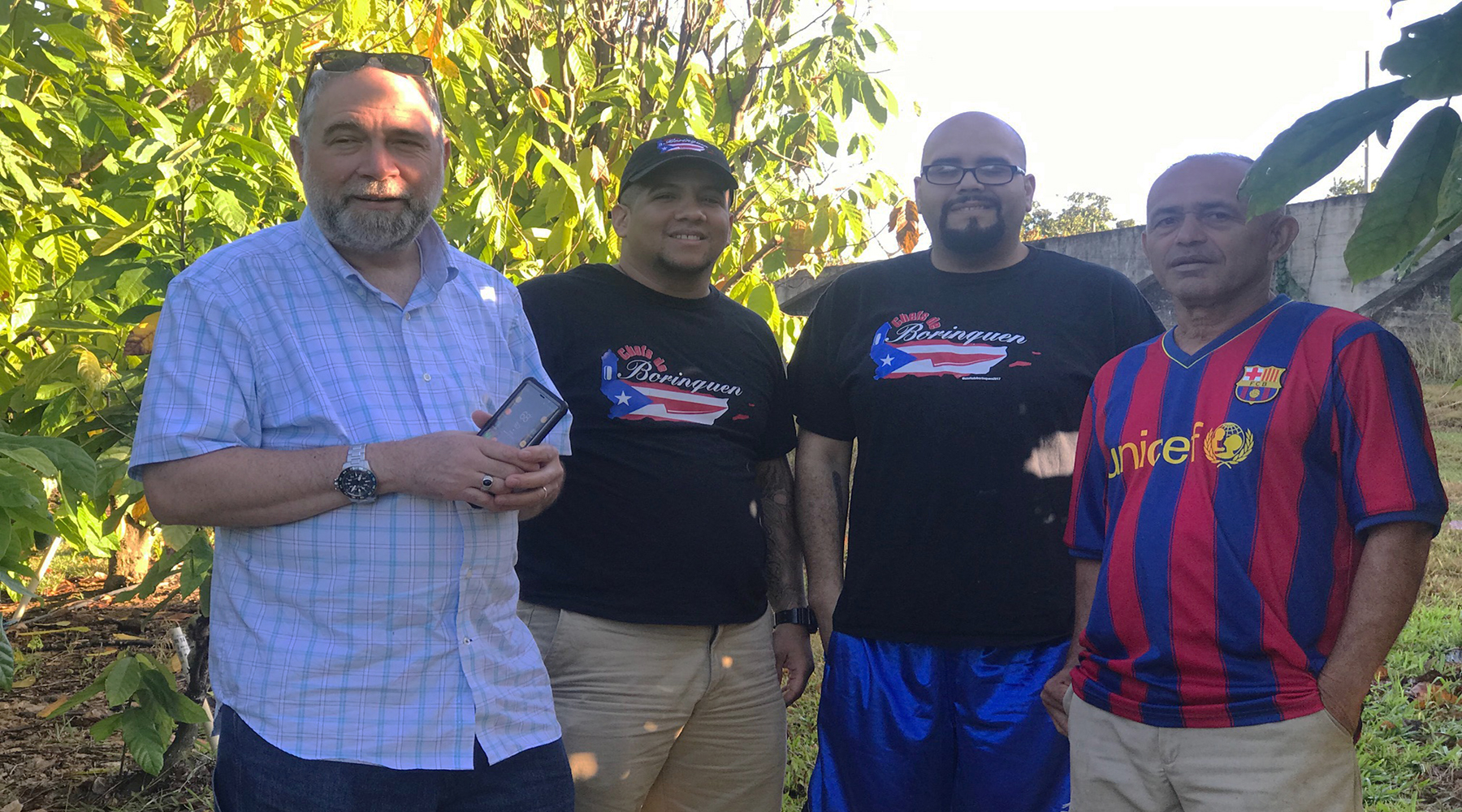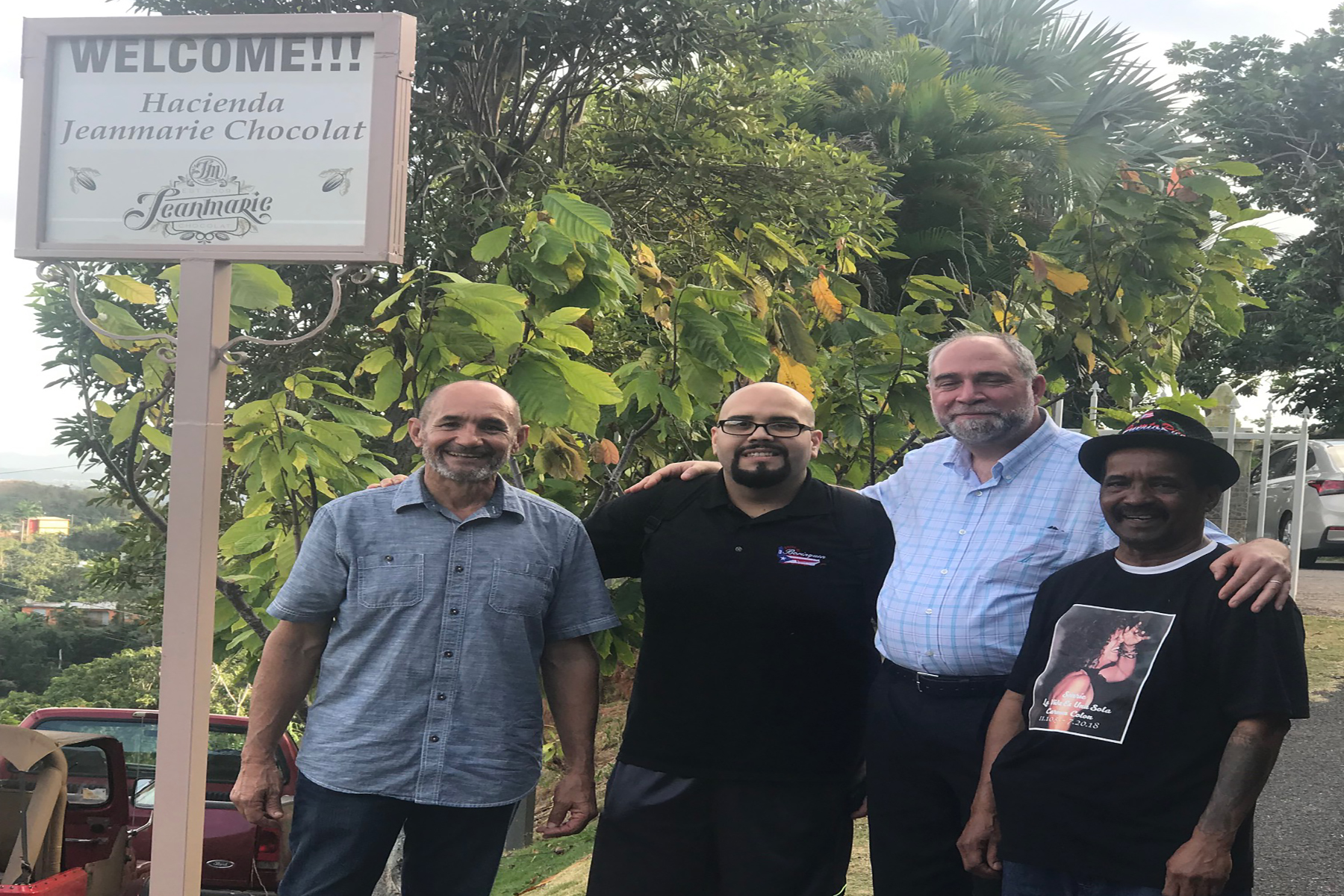Chefs de Borinquen’s motto is simple: help usher in “a new beginning of Puerto Rico.” Members of the non-profit relief organization are focused not just on feeding people—they filled over 3,000 bellies after Hurricane Maria—but building community by fighting hunger and poverty through food education. To start this new era, Chefs de Borinquen is relying on the Boricua diaspora and kitchen connections its founder Samuel Diaz has spent decades cultivating. Not bad for a former aspiring football player turned chef.
Samuel Diaz, a native New Yorker who grew up in Puerto Rico, started Chefs de Borinquen (CDB) in November 2017. Diaz and his family lived through Hurricane George in 1998 which forced them to leave the island. It’s the reason Diaz jumped to help in the aftermath of Hurricane Maria. Diaz, an executive sous chef at Capitol Hill Club in Washington D.C. knew what it was to live through a disaster. “It gave me flashbacks to when I was younger and all the things that came after the hurricane,” Diaz said.

Diaz reached out to his colleagues—chefs, farmers and foodies alike—that he’d met while coming up in the culinary world he’s been in since in 2004. Together they traveled to Puerto Rico two months after Maria and fed thousands. Soon after, the organization achieved non-profit status and returned to the island again in September of 2018.
CDB have committed to providing long and short term support to Puerto Rico. First there’s the C.D.B. Escuela which partners schools with food service professionals to train school staff on food practices, develop new recipes and teach young people about healthier foods. Then there’s the pledge to return to Puerto Rico if needed to help people during hurricane season. Perhaps the biggest initiative is El Nuevo Renacer de Puerto Rico program which aims to boost the island’s food systems. CDB raised money to purchase food from local farmers and distributed it to Boys and Girls Club in Puerto Rico and were able to reach 1,500 kids.
Most recently CDB took a week-long research trip to the island in February and connected with many farmers who have been struggling to stay afloat in the nearly two years since Hurricane Maria. “The main idea was to go on a trip to get a better understanding of struggles that farmers had, farming and distributing,” Diaz explained.
The Renacer initiative wants to improve food systems by training people and helping farmers. Already huge exporters, Puerto Rican farms took an even bigger hit after the storm. While there CDB hosted a chef/farmer/foodie meet-up in Yauco, a municipality in the southwest region. Here they heard from several farmers facing tough times, such as one man who was growing coffee before the storm and is now growing orchids because it’s less labor intensive on an island with an ever-dwindling labor force.
However, the greatest obstacle is less about labor or resources; it’s exports. “Probably the biggest problem the Puerto Rican farmer is facing right now is that it’s very hard to be competitive,” said Zaid Kurdieh, 54, who owns and operates the 240-acre Norwich Meadows Farm in Norwich, New York. Kurdieh, who accompanied the group, said that produce from the Dominican Republic and Costa Rica are flooding Puerto Rico’s market.
Currently food that gets bought and eaten is hardly local. The organization’s proposed solution–find ways to import produce from Puerto Rico’s farms to over 1 million Puerto Ricans currently living in New York City. From there, Kurdieh said they can sell the produce to restaurants as well as feature the goods at the Union Square Greenmarket, allowing Puerto Ricans in New York a chance to support the agriculture on the island. “The more people from the community of Puerto Ricans that support this effort, the easier this job will be,” Kurdieh said.

CDB also visited the Vaca Negra cheese company, the farmer’s market in San Juan and the USDA’s Tropical Agriculture Research Station, which curates the various plant species on the island.
Diaz hopes he and the organization can return to the island and continue their agricultural relief efforts in the late summer of 2019. Considering their future endeavors it is a definite necessity. On the horizon is a plan to adopt a school in Yauco and train their staff; training interns from Puerto Rican farms on mainland farms like Norwich Meadows; and initiating a Community Supported Agriculture program, which entails selling boxes of fresh produce along with creative recipes from Chef Diaz and others—sort of like Hello Fresh with a Puerto Rican slant.
“It will take a long time, but as a farmer you never give up,” Kurdieh said. We bet Diaz and CDB are banking on it.
